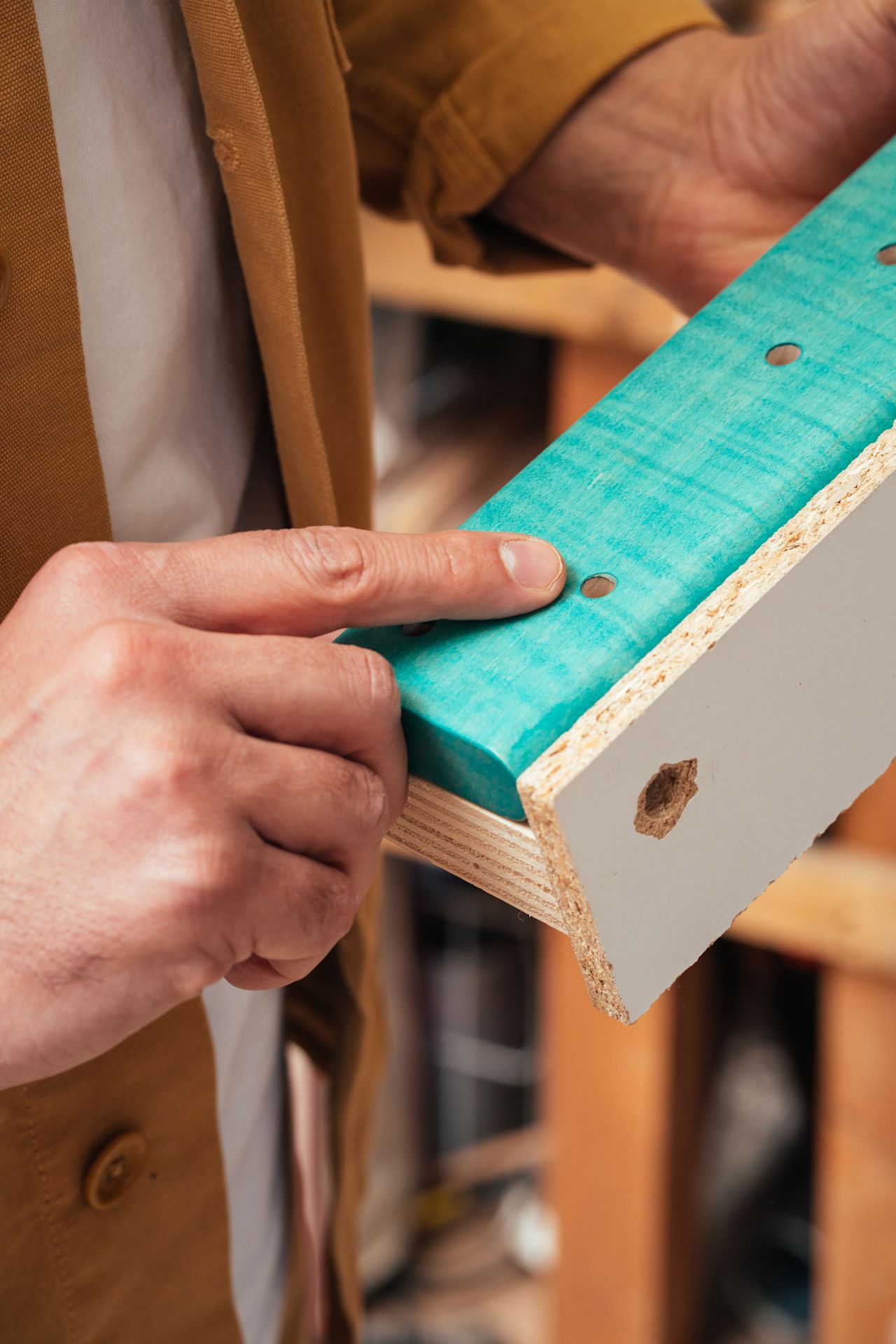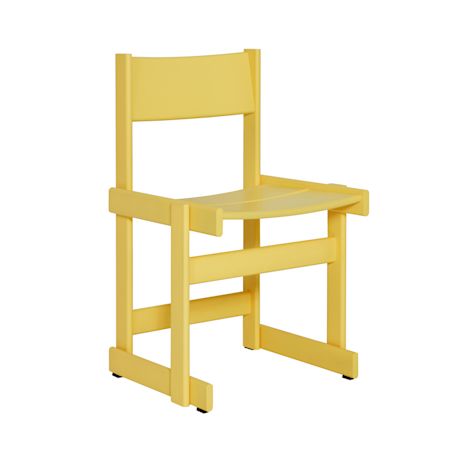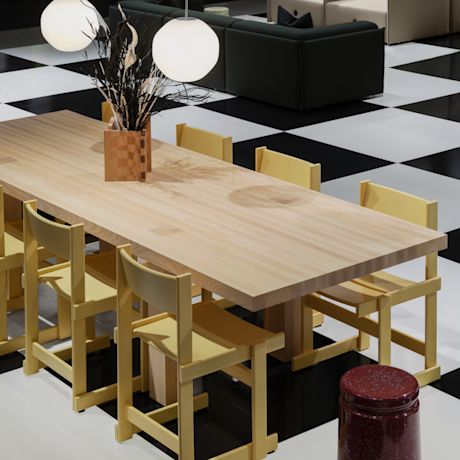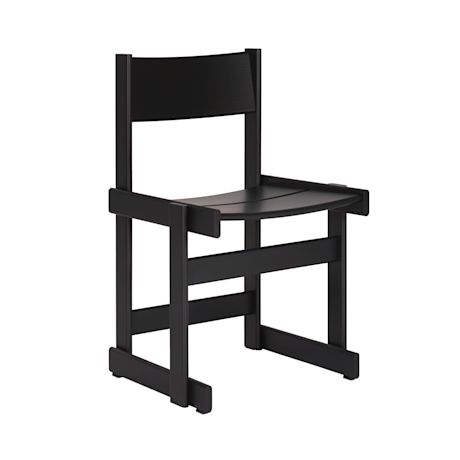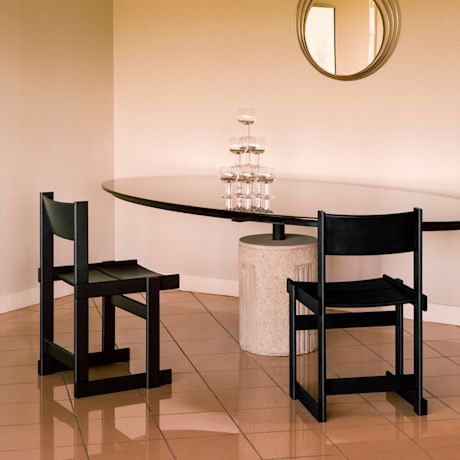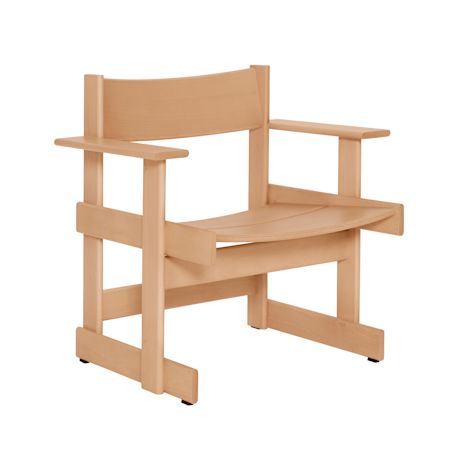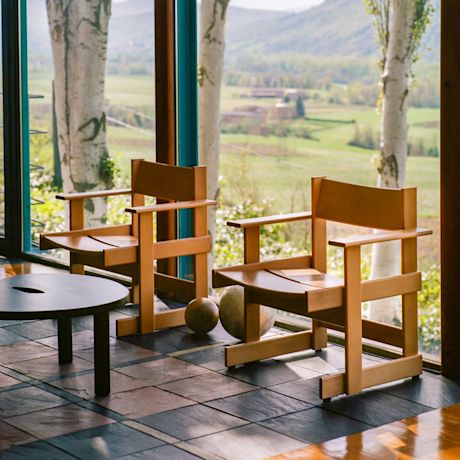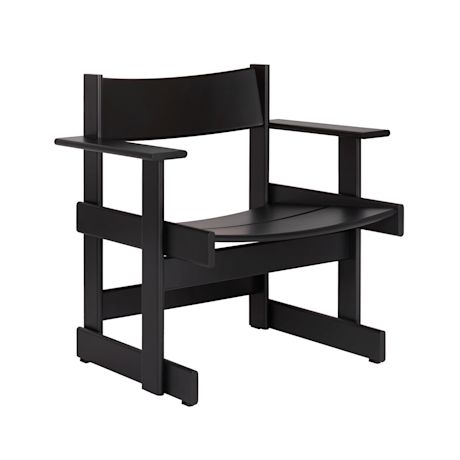In the studio: Marco Campardo
London-based designer Marco Campardo thinks with his hands. His explorative and self-initiated projects result in designs loaded with personality. Just not too much. Here, he tells us how the Bullnose Chair for Hem was originally designed as a formal exercise and problem-solving activity that turned into a pleasure of making.
Photography George Baggaley, Interview by Laura Houseley
.](https://images.ctfassets.net/v1z1ea1ae17v/Jg5xPx9pSxhS6Q3Yqumpn/8e845410e3d8c0f783cfd132a6f0b2a9/2023_11_Marco_Campardo_George_Baggaley_10.jpg?w=1280&h=1920&fl=progressive&q=80&fm=jpg)
Marco sitting in Bullnose Lounge Chair Natural.
](https://images.ctfassets.net/v1z1ea1ae17v/KtWzGfd0jQb2sOilLWAzT/2024d17f255cb0c959bc1b8e6fc113d4/2023_11_Marco_Campardo_George_Baggaley_7.jpg?w=1280&h=1920&fl=progressive&q=80&fm=jpg)
You mentioned that your earliest making memories were with your father?
I grew up outside of Venice. My dad was a carpenter. I remember him getting up at 3am and driving to Rome where he worked for several days. His client was very special - the Vatican. It was only years later that I realized how fortunate we were that the Vatican employed my dad. I spent a lot of time with him making things when I was young. He still helps me out today. He is 81 years old now, but very active. He is always learning new things.
Is that where you get it from?
I believe in practice theory. I am not an academic. For me, designing is about thinking with my hands. By doing that I developed my own theory.
Do projects begin the same way now?
I experiment with different materials, without knowing what the outcome will be. I spend a lot of time speculating with different materials and exploring them without really knowing where it is going. Some designers are more driven by defining forms first and finding the right materials after. But that is not how I work.
“I would never consider myself an artist. I am a designer because I always adapt to the context of each project and there is always a function.”
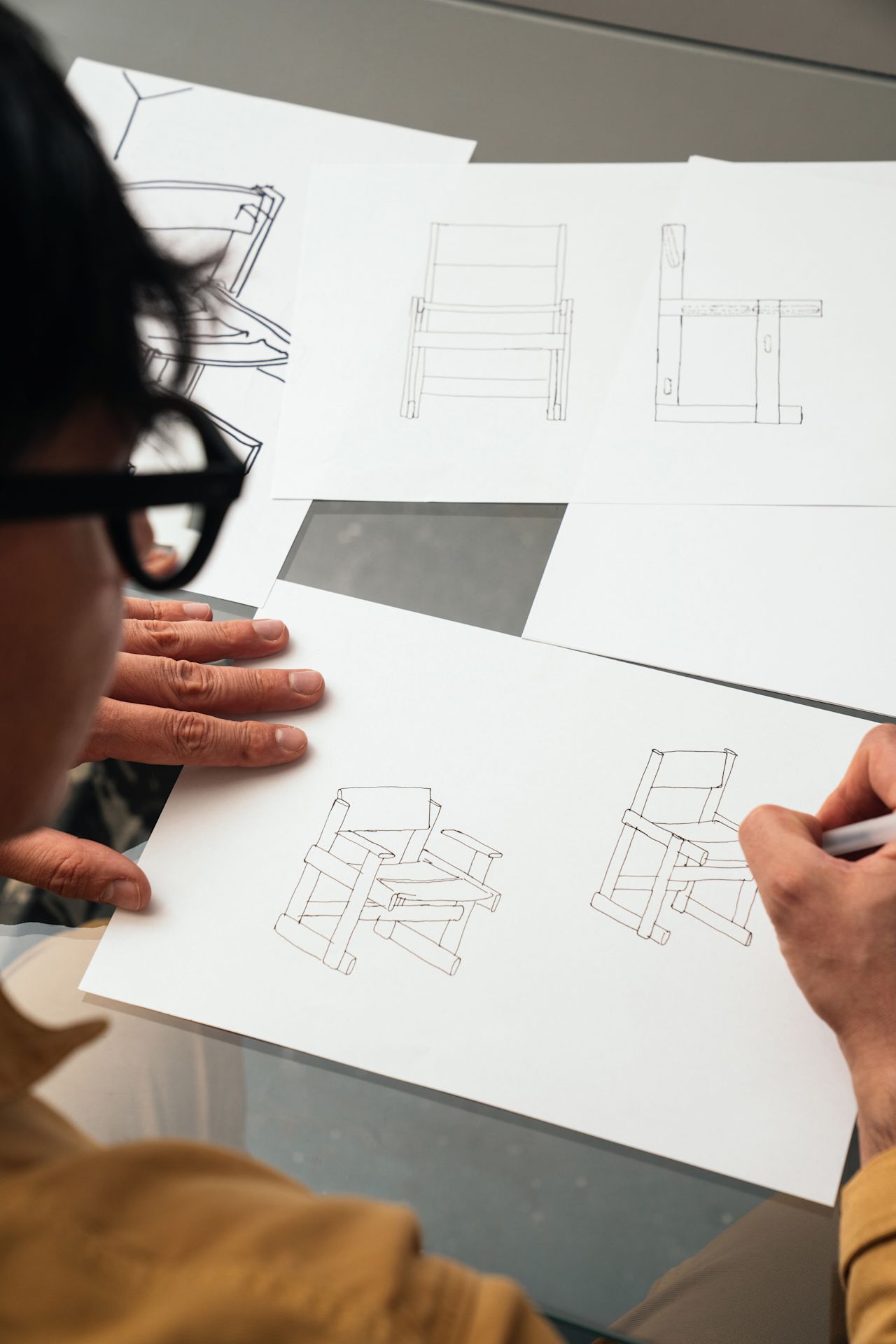
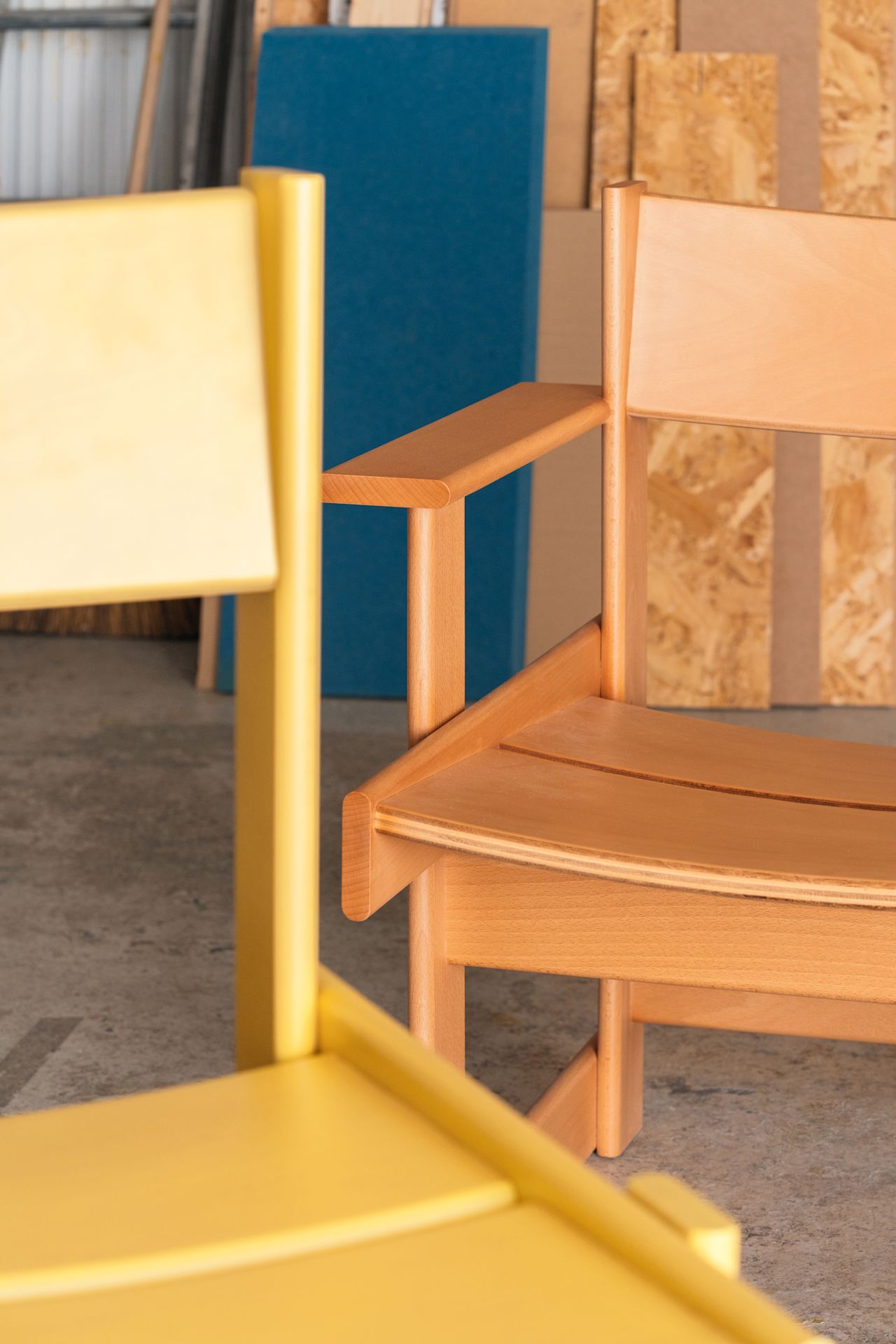
And some designers begin by identifying a problem they want to solve, but that doesn’t seem to be your method either?
If I am experimenting with a material, then the project is about what the material can do. If I receive a brief that requires a specific function, I’ll start there. I would never consider myself an artist. I am a designer because I always adapt to the context of each project and there is always a function. But, in the end, I would prefer to be driven by the curiosity of discovering new things rather than be driven by a company who is waiting for a new design.
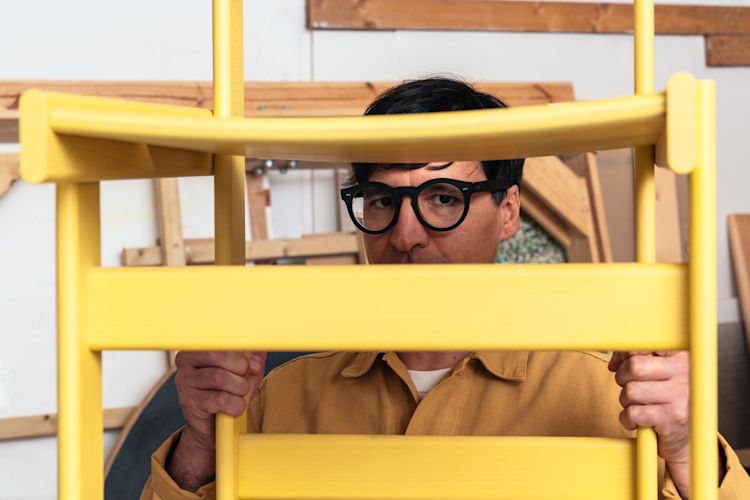
You work with a broad spectrum of materials too. What unites your work if it is not the things we have just spoken about? What is the common thread?
Perhaps it is my incapacity to design things. Materials are an ideal starting point to find new ideas. It’s a process driven attitude. If I don’t know how to design a light, I’m inclined to begin somewhere that will help me find the right shape. So, most of the time it is an excuse to find new ideas and new shapes. Plus, the fact that I’m fascinated by the material itself. Studying materials is a form of knowledge. According to Enzo Mari, design is only design if it communicates knowledge.
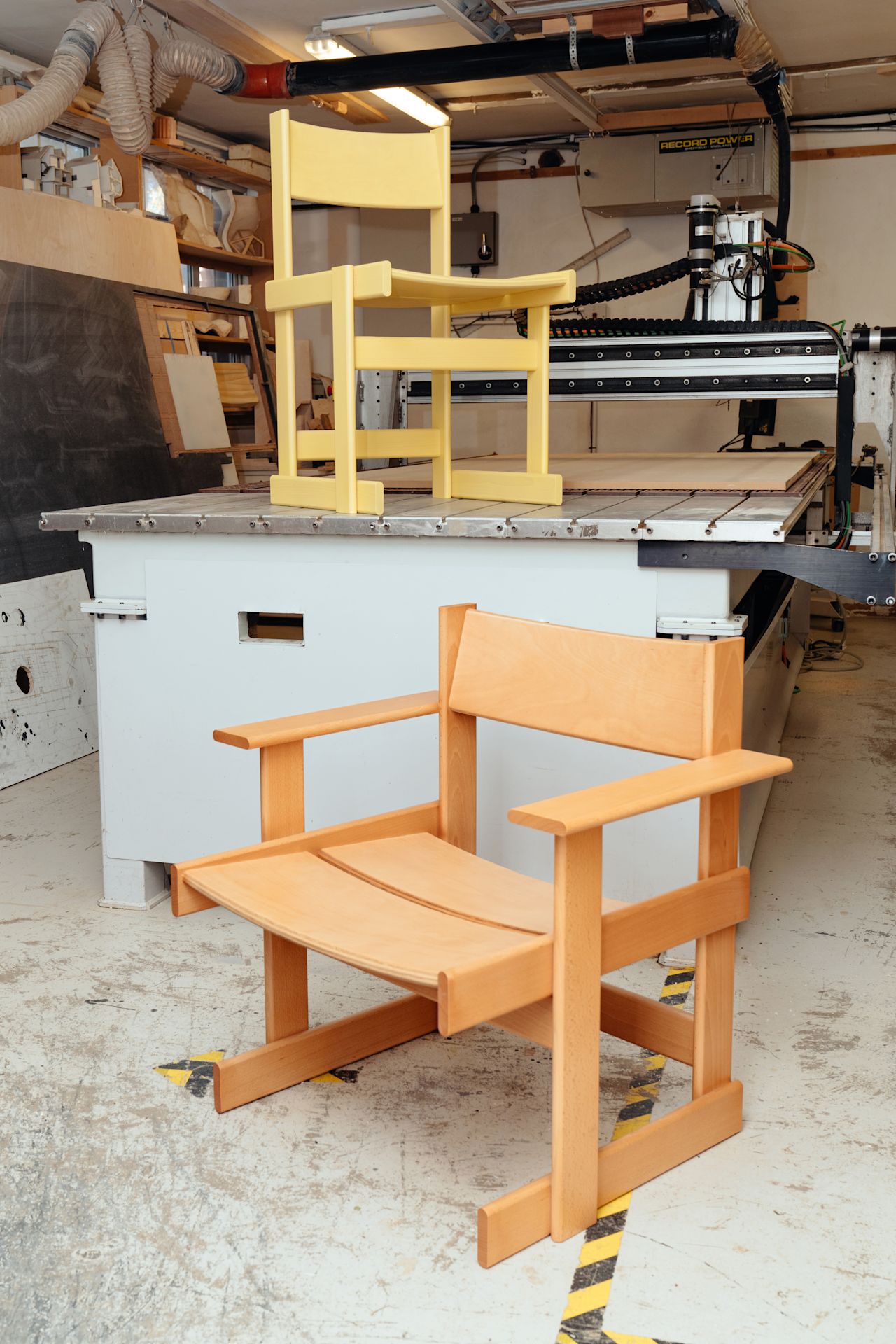
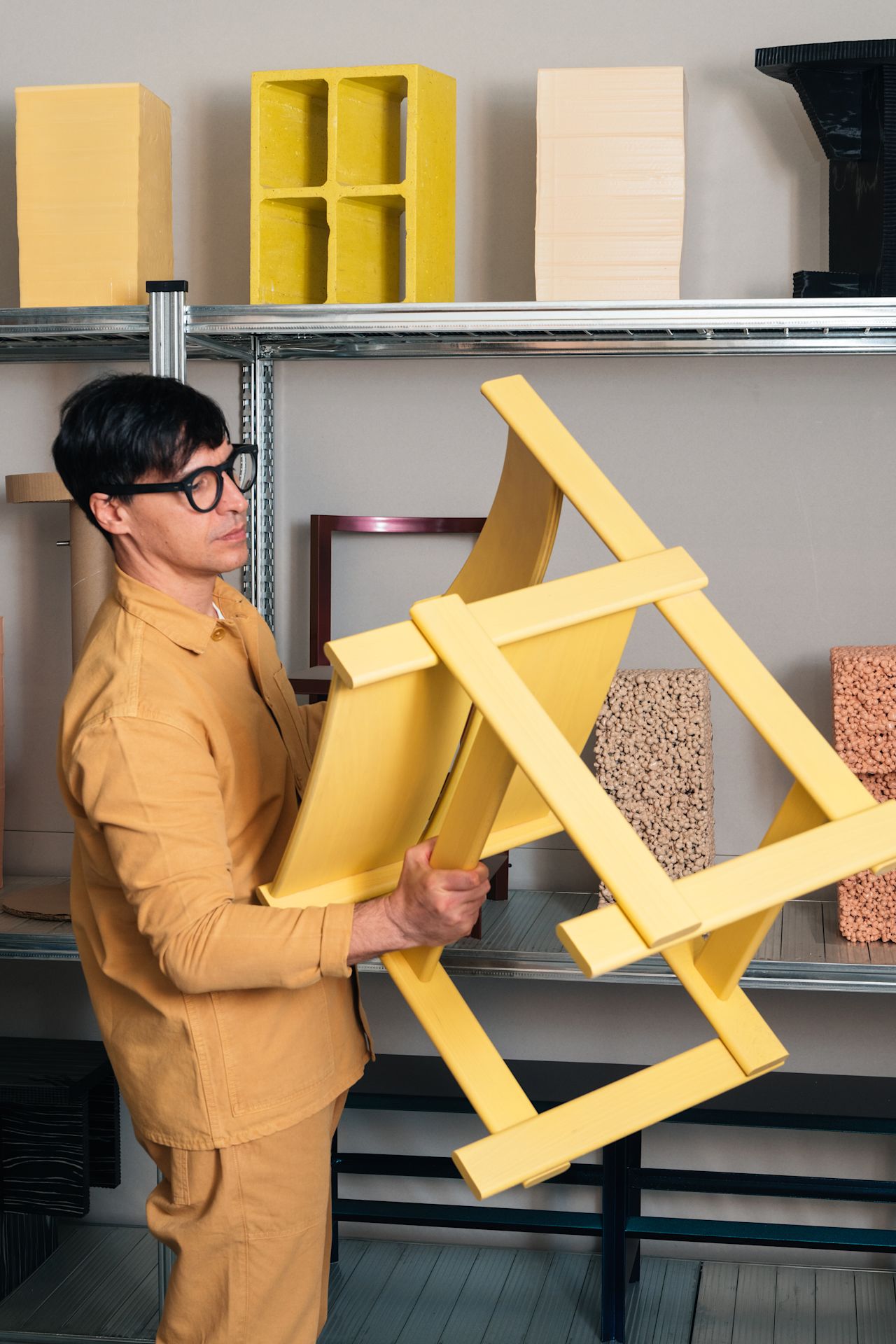
Good design is when knowledge is made visible.
Optimizing materials has often solved a collection for me. My Jello collection, for example, began with me needing to produce 30 affordable stools in four days for a museum without facilities or machinery. I needed to use a little amount of material. Rotation molding came to mind.
But few people, I think, would have attempted to recreate the industrial process of rotation molding in their studio…
I like to try things for myself. It’s not that I choose to make something and then find someone that knows how to make that thing. It’s a different mindset.
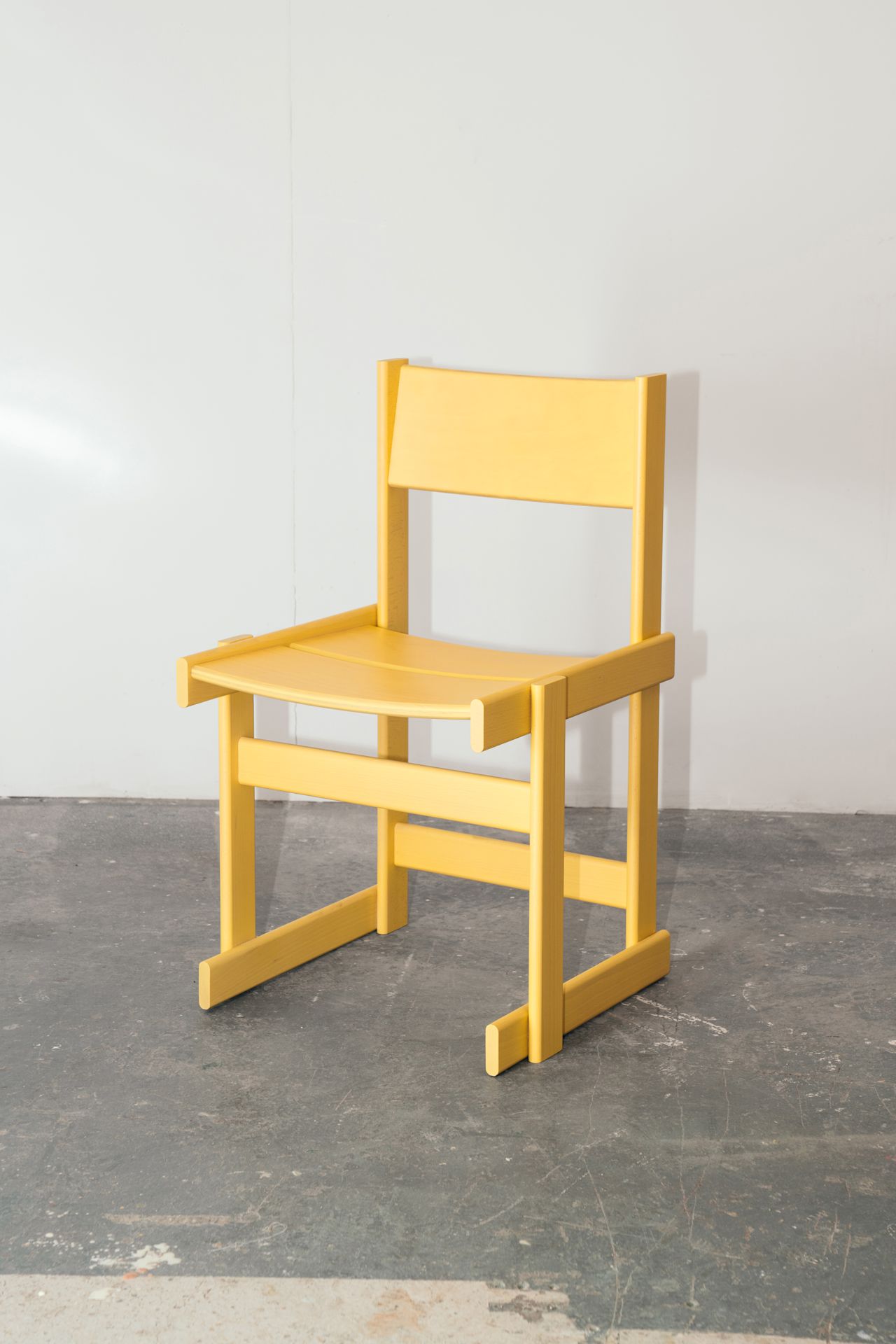
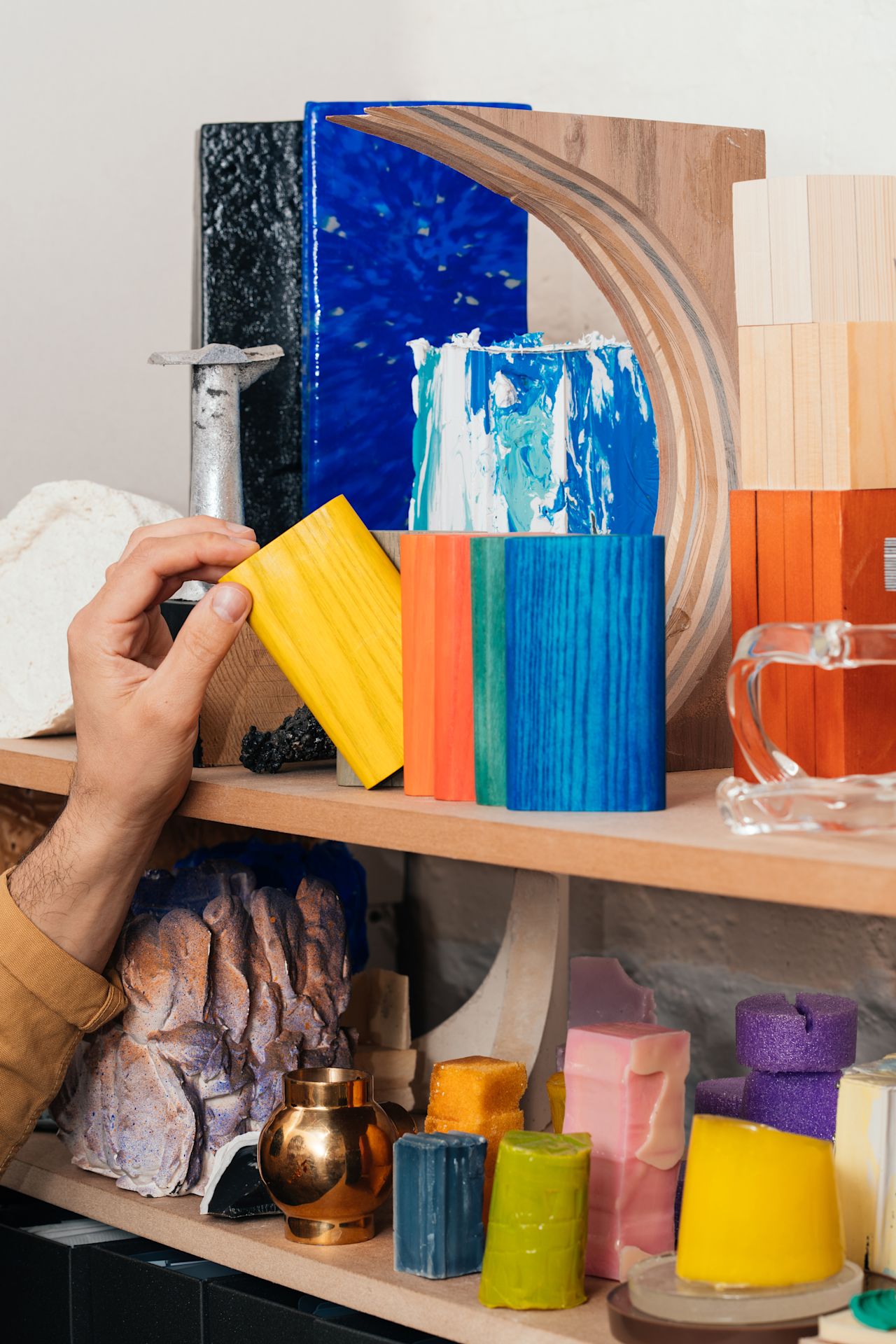
The Jello collection demonstrated your approach. What about the Bullnose chair? How did it come about
My partner and I were refurbishing an apartment. I made a table for us, but we also needed chairs. Nothing we saw was right. So, influenced by Enzo Mari’s autoprogettazione (’self-design' project) and also a great book of Rietveld’s DIY chair designs, I decided to try, as a formal exercise, to see if I was able to achieve a chair with the tools that I had available at that moment. The chairs by Mari and Rietveld that I was using as a reference were very square and rigid and so when I found the bullnose profile, it added an element of softness.
The Bullnose Chair seems to have a very logical construction.
Bullnose is like music. There is a rhythm, but with pauses in between. The question for me was ‘how can I achieve something within these limits?’ That was my homework.
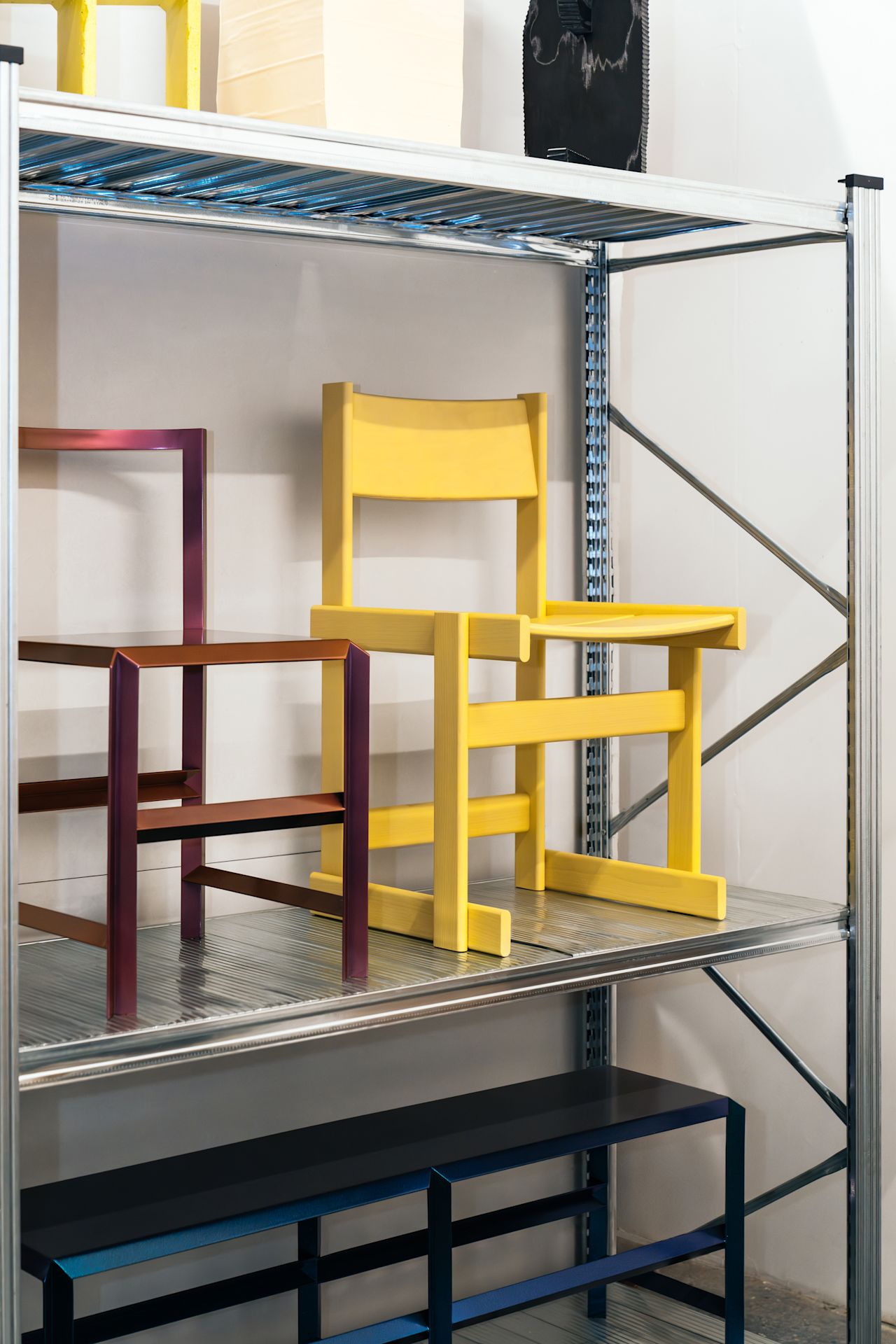
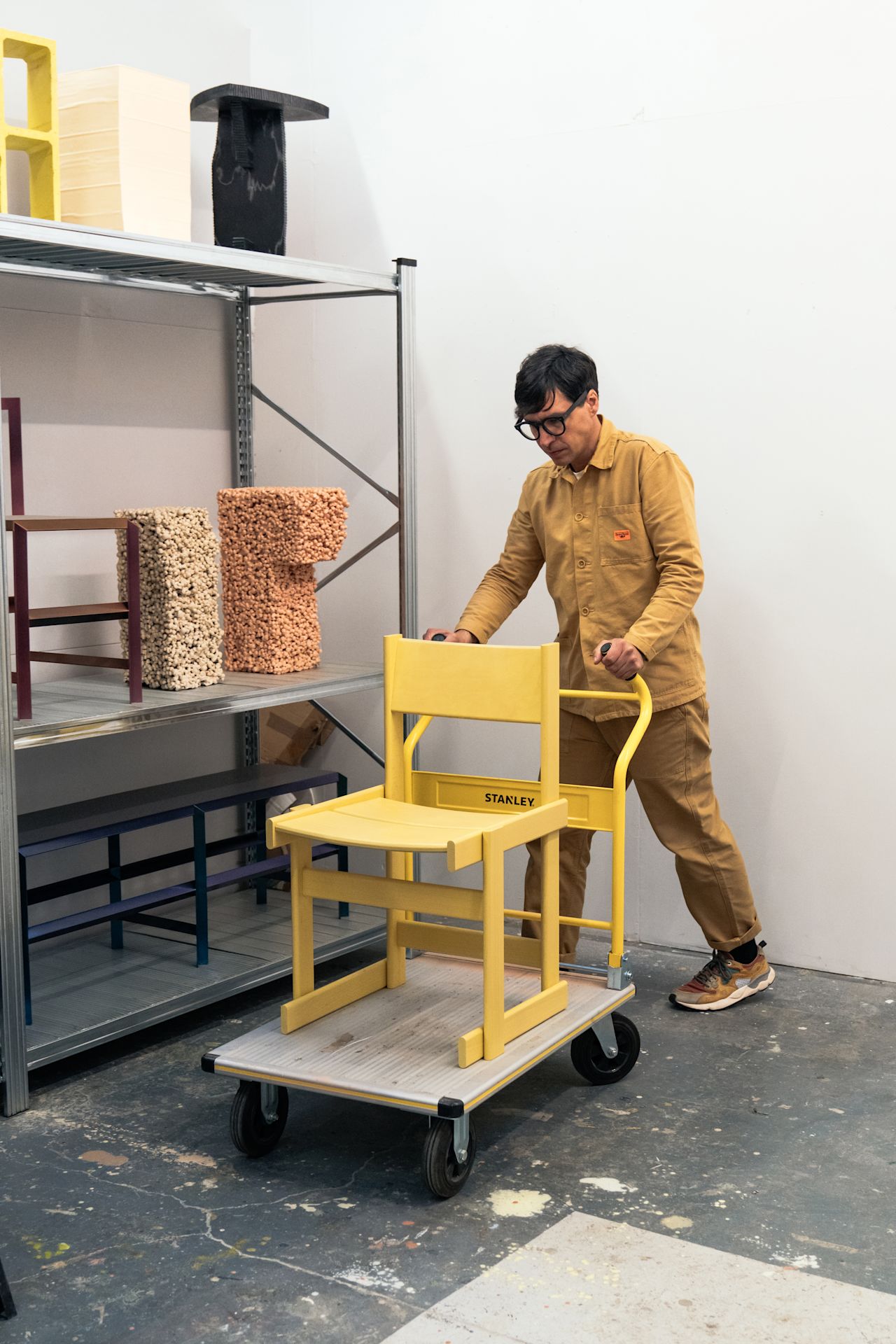
When you designed Bullnose, did you think it could become a mass-produced product?
No, because it’s a wooden chair and how many wooden chairs are there already? It was simply the case that producing my own chair was cheaper and more rewarding. Making is, for me, an occasion to enjoy the making itself and to learn by doing it.
“Bullnose is like music. There is a rhythm, but with pauses in between.”
Do you choose processes that are unpredictable?
Some projects become about more than just the making. When I was working on my Jello collection, for example, the thrill of opening up a mold to see if the piece had worked was so exciting. Maybe I need high tension to perform.
That’s good to know. You need an element of danger?
It is enjoyable to try something that is not certain.
And is it satisfying to master a process?
Yes, I think, in the end, that is the best part, even though a customer never sees that and only experiences the final object.
Lastly, how do you imagine people using the Bullnose Chair? You created it for yourself and your own family. But now it’s going to be used by many more people.
I am a fan of the side chair because the Bullnose’s side profile is its best angle, I think. But I hope people will use it in many different ways; the Dining Chair can work alongside any shape dining table and the Lounge Chair sits well in almost any interior… The Bullnose has personality, but not too much personality.
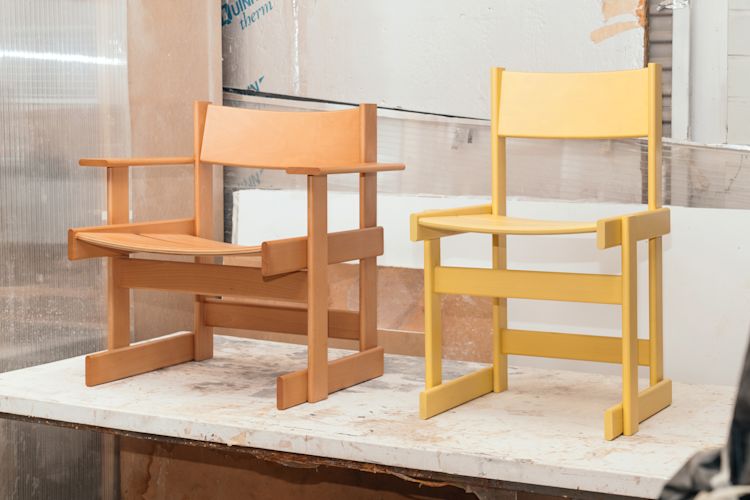
](https://images.ctfassets.net/v1z1ea1ae17v/gR7IlHnAqRidF6nnwfIyW/b9a9a6d7ff0dc0a9b2f21771e15360b1/2023_11_Marco_Campardo_George_Baggaley_5.jpg?w=1280&h=1920&fl=progressive&q=80&fm=jpg)
